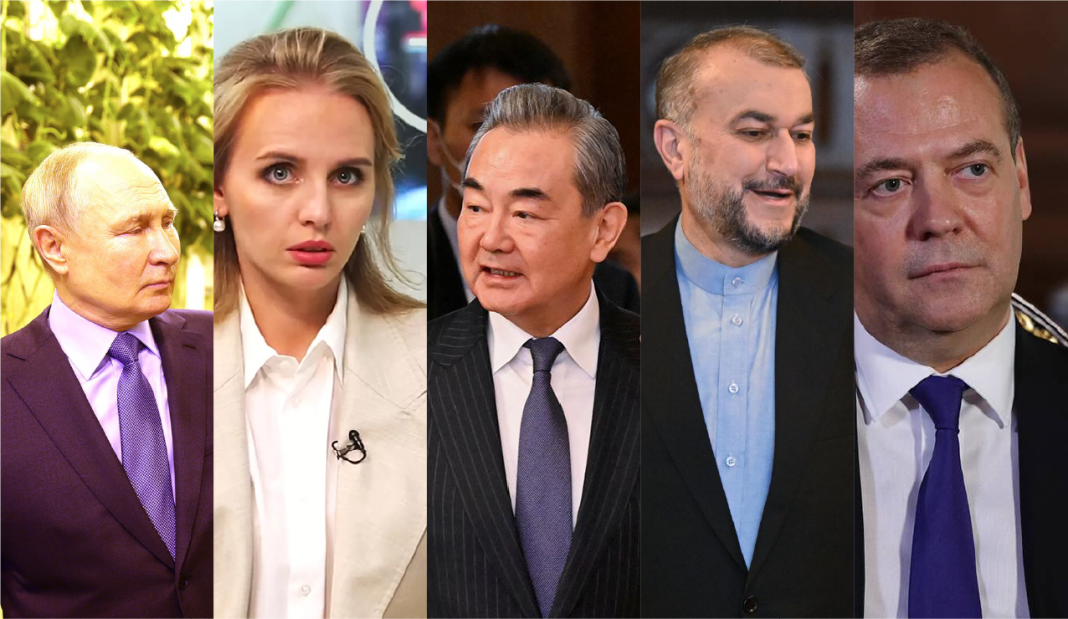This report describes the key events significantly influencing Russia’s political, economic, and social processes.
Assessing the past week’s results, we identify the following trends:
- It is remarkable that Vladimir Putin began his election campaign with a trip to the Far East. Firstly, the Far East is one of the priority regions for Russia’s development in the last decade. The Government of the Russian Federation provides for a special position of Minister for the Development of the Far East. In this sense, we can predict the growth and strengthening of the positions of Yuri Trutnev (Deputy Prime Minister of the Government and, at the same time, the Presidential Representative in the Far Eastern Federal District) and the Minister for Far Eastern Affairs, Alexei Chekunkov, who is predicted to have a great future in Russian politics.
- “Lifestyle” articles during election campaigns are a very important element. People need to be shown “Putin with a human face.” The absence of a legal wife next to him should be more than compensated for by interviews with his daughters, creating the effect of a “loving and caring father” who raised successful children. It is worth understanding that shortly, we should expect an interview with Putin’s youngest daughter, Ekaterina Tikhonova, in the same way.
- It is important to note that recently, the issue of the possible creation (or rather resumption) of a Russian military base in the Gulf of Aden has become noticeably urgent. It is possible that it was for these purposes that Russia-allied Ethiopia entered into a deal with uncut Somaliland on a long-term lease of the port of Berbera. Such plans can only be implemented with full control and consent from the PRC, which already has its military base in neighbouring Djibouti. It is possible that against the backdrop of escalation in the Red Sea, these very issues can be discussed at the diplomatic level between Moscow and Beijing.
This report highlights the following most relevant for Russia matters, which occurred during 08-14 January:
1. Vladimir Putin’s visit to the Far East;
2. Statements by Dmitry Medvedev;
3. Interview with Maria Vorontsova;
4. Telephone conversation between Sergei Lavrov and the Minister of Foreign Affairs of China;
5. Telephone conversation between Sergei Lavrov and the Minister of Foreign Affairs of Iran.
This Content Is Only For Subscribers
- Vladimir Putin’s visit to the Far East
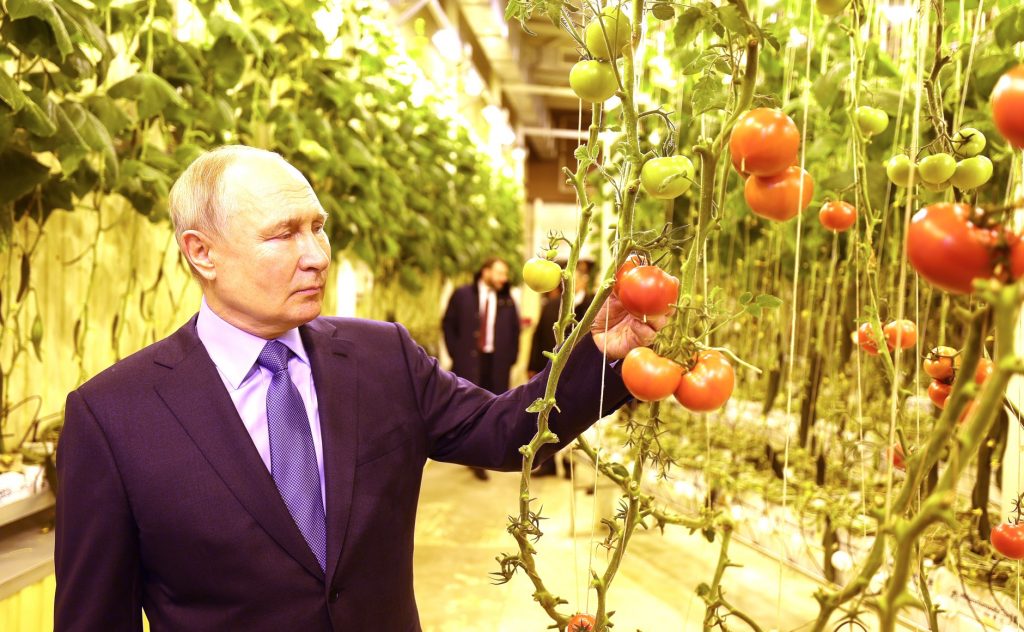
On Wednesday, January 10, Vladimir Putin went on a two-day visit to the Far East, where he visited the Chukotka Autonomous Okrug and Khabarovsk. The Russian president held a series of meetings with heads of local administrations, talked with residents of the regions, and held an open meeting with entrepreneurs of the Far Eastern Federal District.
It is noted that this was the first working visit of the Russian president to Chukotka. During the visit, Putin visited a year-round greenhouse complex, held a meeting with residents and business representatives of the city of Anadyr, and also held a separate meeting with the governor of the region, Vladislav Kuznetsov.
Key theses from the meeting with Anadyr residents:
- Putin: “Chukotka is on the lips of the whole country. Not only because this is the easternmost region of Russia but also because mineral resources are concentrated here in large quantities, there are a lot of issues related to ensuring the country’s security, with the development of logistics routes – extremely important not only for Russia but also for the whole world”.
- Putin: “I just, just finished a conversation with the Minister of Finance. He reported on other issues, the overall financial situation over the past year, and plans for the coming 2024. The country’s budget system feels confident, calm, and is developing actively.”
- Putin: “At the birth of a third child, we have a rule according to which the family receives, in addition to the preferential mortgage, 450 thousand rubles to repay the mortgage loan. In the Primorsky Territory, such families where a third child appears are paid an additional 550 thousand rubles – and that turns out to be one million to repay the loan.”
- Putin: “As you understand, there are no issues with material and financial support for everything that happens in the [so-called] “North Military District” zone. Everything is fully funded everything. If something arrives at the wrong time, with delays, this is simply a manifestation of some kind of bureaucratic failure in the worst sense of the word – that’s all.”
- Putin: “I was going to fly to Yakutia now, but the plane couldn’t land there – I had to cancel the trip to Yakutia. I’ll leave anyway, but now there’s a specific problem due to the transport scheme.”
Key theses from the meeting with the governor of the Chukotka Autonomous Okrug:
- Kuznetsov: “Our main vector of development is the development of industrial production. We are currently implementing large investment projects. One of our largest projects is the Baimsky [GOK], a copper mining and production project. It increases copper production in the Russian Federation by a quarter. It is well underway; the project is very large-scale because it requires the construction of a large infrastructure. A terminal is being built for it in the port of Pevek. We are experiencing an increase in industrial production.”
- Kuznetsov: “We are also growing investments in agriculture, including growing vegetables. We see quite a large increase in closed ground. You know that most products are imported to us. This is both expensive and from the point of view of agricultural products, it is also not very convenient because people want fresh products.”
- Kuznetsov: “I would like to say that we would not have had that industrial production and development if it were not for, probably, one of the best investment climates in the country. Three preferential regimes – this is a territory of priority development, the free port of Vladivostok, and we are completely located in the Arctic zone. On the one hand, this reduces budget revenues at the initial stage, and on the other hand, in our harsh climate, it allows us to attract investors.”
- Kuznetsov: “Our prices are quite high – that’s what we talked about when we talked with the Far Eastern governors. But now the Ministry of Construction is solving this problem because when we co-financed, say, two per cent, because of this difference in prices, our co-financing reached 65 per cent. We don’t have such budget sources, but now it’s becoming easier.”
- Kuznetsov: “Domestic flights are also becoming easier here. Next year, we are purchasing two helicopters under lease for our ChukotAVIA enterprise, and we will already have a fundamentally different flight schedule. Our goal is to be able to fly from any locality to Anadyr once a week. This is not the case in some localities – two weeks or more. We will aim for it to be once a week.”
On the same day, Putin went on a working trip to Khabarovsk, where he got acquainted with the presentation of long-term plans for the socio-economic development of Far Eastern cities, talked with local entrepreneurs and held a separate meeting with the regional governor Mikhail Degtyarev.
Key theses from the meeting with entrepreneurs of the Far Eastern Federal District:
• Putin: “Yes, this is an amazing result. We seem to be strangled and crushed from all sides, but we have become the first in Europe in terms of economic volume; we have overtaken Germany and taken fifth place in the world: China, the USA, India, Japan, and Russia. In Europe – number one.”
• Putin: “The Central Bank’s key rate in its current form is still temporary. And the head of the Central Bank speaks about this, and experts say: as issues related to inflation are resolved, as inflation is suppressed, I think this position will change.”
• Putin: “By the egg, do you see what happened to us? We didn’t get our bearings in time. Our production volume has not decreased; consumption has increased. In connection with the population’s real disposable income, people’s incomes increased a little, but still a little. They began to buy more eggs and chicken meat, but they didn’t think about opening imports in time – boom! – and prices grew up. Therefore, you need to be very careful.”
• Putin: “It will be better because all the actions of the Central Bank and the Government – not all, but a significant part of them, the Central Bank for sure – are aimed at suppressing inflation. And I think that we will reach the target indicators.”
• Putin: “I agree with you; we need to develop the tourist cluster of the islands. It’s exciting there; they say I’ve never been; unfortunately, I’ll definitely come.”
Key theses from the meeting with the governor of the Khabarovsk Territory, Mikhail Degtyarev:
- Degtyarev: “On your instructions, we raised the minimum wage by 18.5 per cent from January 1 for all budget employees according to the May decrees – by the average growth in the economy, but for other categories – the so-called non-decrees – we found additional funds, and today I signed a resolution on an increase of 10 per cent from January 1 of this year. These are all our veterinarians, foresters, firefighters – more than 30 thousand people. Therefore, from January 1, a new salary with an increase will begin.”
- Degtyarev: “According to the [so-called] “special operation.” Thanks to our people, we fulfil all our obligations to the Motherland; our soldiers fight on the front line. Three named units were formed: “General Korf”, “Maxim Passar”, and “Erofey Khabarov” – in honour of famous people associated with this land, with the Far East. We already have 16 Heroes of Russia: motorised riflemen, pilots, sailors, reconnaissance officers, and two Russian Guardsmen.”
- Degtyarev: “Now on economics. I promised you to double the GRP in 2021 in five years; everything is going according to plan. This year, 1 trillion 250 billion rubles. The main driver is also the manufacturing industry. First of all, this is general shipbuilding, aircraft, and aircraft manufacturing, including military aviation, metallurgy, and building materials; today, our entrepreneurs spoke on this topic. There has been a slight decline in the extractive industries, but this is due to our record last year. Last year, we mined a record gold – 28 tons; this year, it dropped a little, and the ore became poorer, but there were new deposits. We expect growth next year.”
Outcomes and outlook:
Remarkably, Vladimir Putin began his election campaign with a trip to the Far East. Firstly, the Far East is one of the priority regions for Russia’s development in the last decade. The Government of the Russian Federation provides for a particular position of Minister for the Development of the Far East. In this sense, we can predict the growth and strengthening of the positions of Yuri Trutnev (Deputy Prime Minister of the Government and, at the same time, the Presidential Representative in the Far Eastern Federal District) and the Minister for Far Eastern Affairs, Alexei Chekunkov, who is predicted to have a great future in Russian politics.
Chekunkov is a man of the former head of the Presidential Administration, Sergei Ivanov, a close friend and classmate of his son (also Sergei), who has influence not only in the Far East but also in Sakha-Yakutia. Thus, the future of the Far East will depend on compromises in relations between Trutnev and the Ivanov clan, with attempts to play the “third force” by Gennady Timchenko and Leonid Mikhelson. So far, they have managed to get along without any problems. But it’s not difficult to provoke a conflict with such a diverse audience.
Secondly, the Far East is the gateway to the Pacific Ocean and cooperation with China and North Korea. Russia is trying to become an influential player in the Pacific Ocean, presenting its main trump card: it controls the Northern Sea Route, which is very important in trade operations between the Pacific region and Europe.
Thirdly, regarding the elites formed in the region and their attempts to play independent games, the Far East is the most restless region. The events in Khabarovsk in 2020 showed this. However, the rest of the heads of the Far Eastern subjects of the federation did not support Sergei Furgal. Putin makes it clear that he values the position of regional elites (and in the situation with Chukotka, he gives an advance to the new governor Vladislav Kuznetsov, the former “Deputy Chairman of the Government of the LPR”, a nominee of Mikhelson and Timchenko, appointed to the position less than a year ago.
- Statements by Dmitry Medvedev
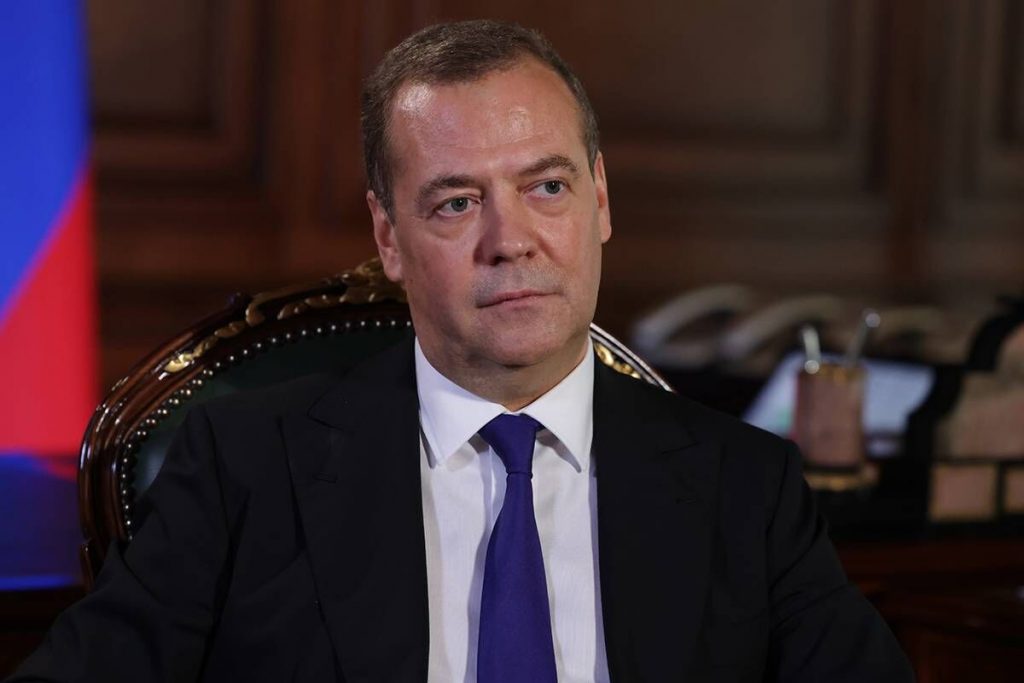
Over the past week, Deputy Chairman of the Russian Security Council Dmitry Medvedev made several rather loud statements regarding Ukraine, Europe and the United States. Most of them were voiced in Medvedev’s usual form of intimidation and ultimatums. Of course, such statements are difficult to take seriously since such rhetoric from Medvedev is already traditional and does not carry much specificity. However, in the context of general political sentiment in Russia, it is essential to understand that Medvedev’s activation against the backdrop of Putin’s intensifying election campaign may not be accidental.
Below, we have compiled the most resonant statements Medvedev made last week:
About Rashi Sunak’s visit to Kyiv:
- “How would the Western public react to the fact that the British delegation came under fire from cluster munitions in the centre of Kyiv, as happened to the civilians of our Belgorod?”
- “The British understand that the deployment of their official military contingent in Ukraine will mean a declaration of war.”
On the US missile attack on the Yemeni Houthis:
- “This night, the Americans opened a new front against the Houthis in Yemen, diverting attention, among other things, from their problematic Kyiv charges.”
On the possibility of using nuclear weapons:
- “A series of recent intensive and effective attacks on enemy military targets in Ukraine, carried out by the Russian armed forces, confirms the successful and effective work of our defence-industrial complex throughout 2023. Moreover, as is known, different media with different contents were used. Well, except maybe for the nuclear one for now.”
- “This is not a right to self-defence, but a direct and obvious basis for our use of nuclear weapons against such a country.”
Outcomes and outlook:
Dmitry Medvedev continues to play the role of the “war party” leader in the Russian political community. He makes radical statements, is traditionally scared about the use of nuclear weapons, and does not skimp on negative epithets addressed to European leaders.
In this case, in both the West and Russia, everyone understands that this is just a game and that Medvedev’s influence on political processes in Russia is almost zero. But at the same time, they allow for the fact that Medvedev’s words are in tune with the thoughts of many people in power and have serious support in Russia and that if Putin leaves his post, Medvedev’s position may become mainstream. This is what the stake is in promoting Medvedev as “Zhirinovsky’s successor.”
- Interview with Maria Vorontsova
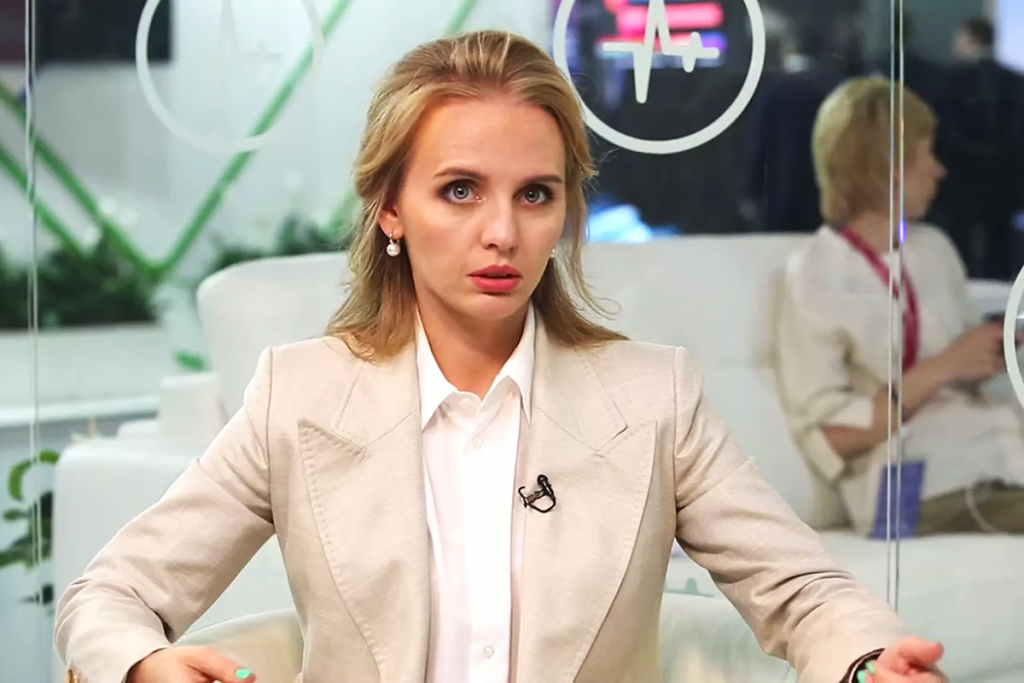
On Thursday, January 11, the Moscow Center for Innovative Technologies in Healthcare (MCITH) published an interview on its YouTube channel with Maria Vorontsova, Deputy Dean for Science of the Faculty of Fundamental Medicine of Moscow State University. She is known in the media as the daughter of Vladimir Putin, as well as a specialist in genetics, under whose leadership developments in genetic rejuvenation are being carried out. At the same time, the interview did not mention the alleged relationship with Vladimir Putin or family life in general, although Vorontsova answered several personal questions.
Key theses:
- “After graduating school, I first wanted to study economics. But such a time, you know, you have to do everything despite it. And I thought: everyone already knows where I’m going; everyone has outlined a long and reliable path for me. I’ll come up with something completely out of the ordinary. And I chose medicine.”
- “I feel comfortable in my profession. I would choose it again if there was such an opportunity, and precisely along this path: first a doctor, a doctor plus science, then a little economics.”
- “And perhaps the latest technologies, be it CRISPR or cellular technologies, will give our patients this opportunity. But we, as doctors, must ensure their safety. Regarding CRISPR, I can say that we still don’t know much, although cases of clinical trials and the use of drugs based on this technology have already been registered. But scientists and doctors, it seems to me, should clearly understand what the risk is. It will never be zero. And whether this risk outweighs the benefit or vice versa.”
- “I don’t think we are ready to predict all the consequences and risks of such technologies. I am still in favour of knowing more before doing it. According to the principle, measure seven times and cut once.”
- “We are more of a human-centric society, and for us, the highest value is still the value of human life. And every day of life lived, even if for the economy it is, perhaps, not so, excuse the word, profitable, not so significant – in spiritual values for us this is a more significant effect, it seems to me.”
- “So that we all understand each other better, communicate better. It seems to me that a lot of problems are due to incorrect communication, due to misunderstandings and misunderstandings of each other, and due to a lack of understanding of ourselves in the first place.”
Outcomes and outlook:
“Lifestyle” materials during election campaigns are an essential element. People need to be shown “Putin with a human face.” The absence of a legal wife next to him should be more than compensated for by interviews with his daughters, creating the effect of a “loving and caring father” who raised successful children. It is worth understanding that soon, we should expect an interview with Putin’s youngest daughter, Ekaterina Tikhonova, in the same way.
- Telephone conversation between Sergei Lavrov and the Minister of Foreign Affairs of China
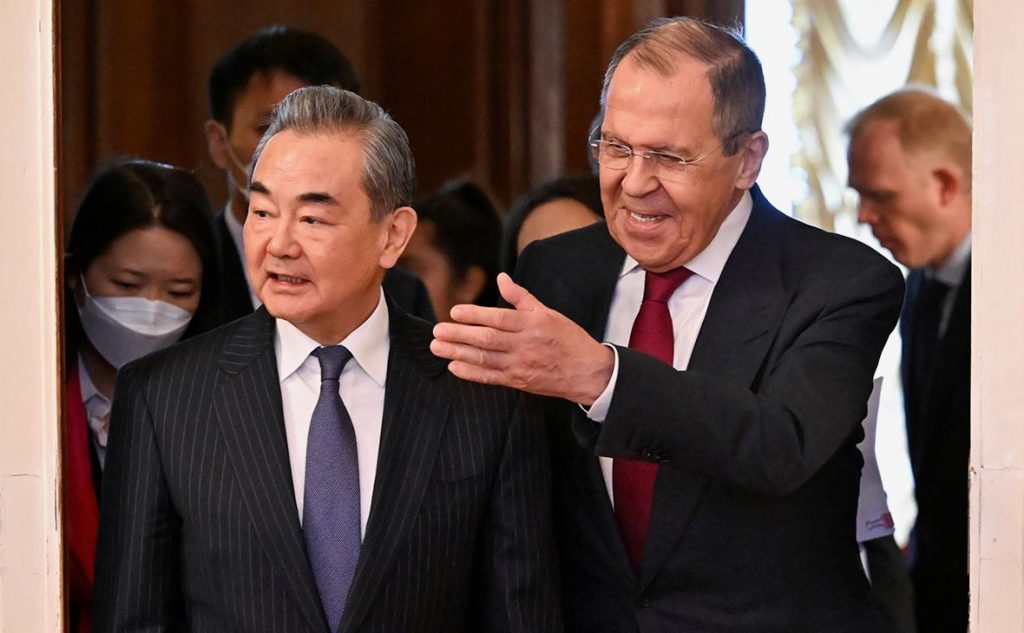
On Wednesday, January 10, Russian Foreign Minister Sergei Lavrov had a telephone conversation with Chinese Foreign Minister Wang Yi. According to official press releases, the parties summed up the interaction results in 2023 during the conversation. Also, they emphasised the special importance of Russian-Chinese strategic interaction for establishing a multipolar world order.
The ministers also noted the success of bilateral trade and economic cooperation, which coped with external challenges, and the trade turnover between Russia and China at the year’s end confidently exceeded $200 billion. The importance of developing cooperation between the Eurasian Economic Union and the “One Belt, One Road” project was noted.”
The parties also discussed several foreign policy issues, in which a common language and understanding for further interaction were found.
Outcomes and outlook:
Telephone contact between the leaders of the foreign policy departments of the Russian Federation and the People’s Republic of China has become traditional. This call was dictated not only by politeness and not for the sake of coordinating plans for the year but also to discuss the acute situation that has developed in the Red Sea region in connection with the actions of the Yemeni Houthis, as well as in connection with the upcoming elections in Taiwan.
It is important to note that recently, the issue of the possible creation (or rather resumption) of a Russian military base in the Gulf of Aden has become noticeably urgent. It is possible that it was for these purposes that Russia-allied Ethiopia entered into a deal with unrecognisedі Somaliland on a long-term lease of the port of Berbera. Such plans can only be implemented with full control and consent from the PRC, which already has its military base in neighbouring Djibouti. It is possible that against the backdrop of escalation in the Red Sea, these very issues can be discussed at the diplomatic level between Moscow and Beijing.
- Telephone conversation between Sergei Lavrov and the Minister of Foreign Affairs of Iran
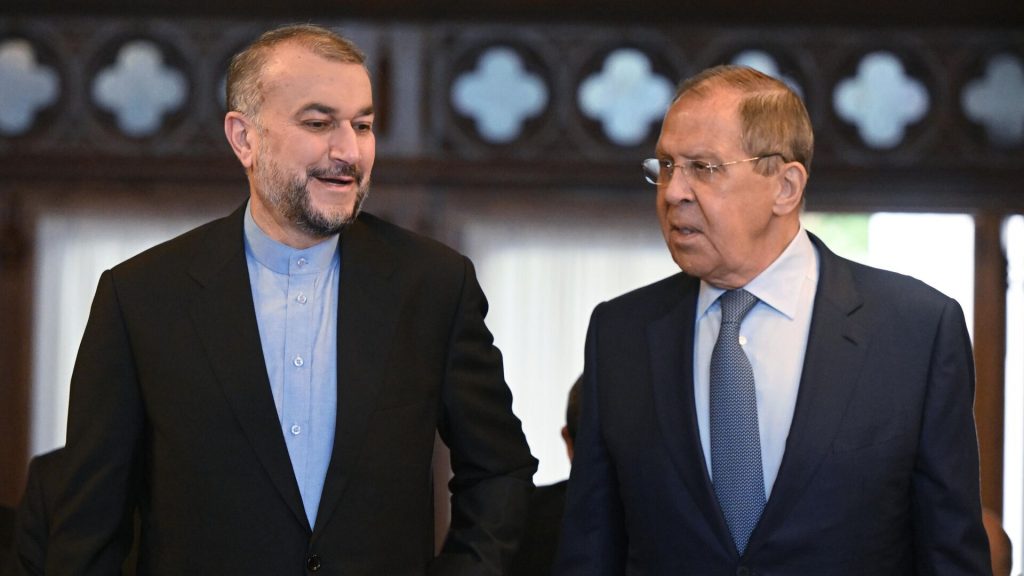
On Tuesday, January 9, at the initiative of the Russian side, a telephone conversation took place between the Minister of Foreign Affairs of the Russian Federation, Sergei Lavrov and the Minister of Foreign Affairs of the Islamic Republic of Iran, Hossein Amir Abdollahian. According to official press releases, the Russian minister expressed condolences in connection with the tragic death of people who had gathered to honour the memory of General Qasem Soleimani in Kerman, Iran. The mood for further coordination of efforts in countering international terrorism was also confirmed.
It is also noted that the parties exchanged views on Middle Eastern and international issues of mutual interest, including the situation in and around the Gaza Strip and the Red Sea. The relevance of building up political dialogue and practical cooperation in line with the agreements reached at the level of the two countries’ leadership was emphasised.
Outcomes and outlook:
Lavrov’s call to Abdollahian pursued the main goal: to show Iran and the whole world the solidarity between Moscow and Tehran, especially since the reason was more than eloquent – the anniversary of the death of such a controversial figure as General Soleimani, as well as the terrorist attack, carried out on the general’s grave, as a result of which More than 80 people died. Moscow has made it clear that in its perception of Soleimani, he takes an opposite position than the one close to the United States and Israel. Likewise, Lavrov made it clear that Russia intends to develop close relations with Iran further and is ready to become a reliable ally of the country – obviously, in the military sphere.

